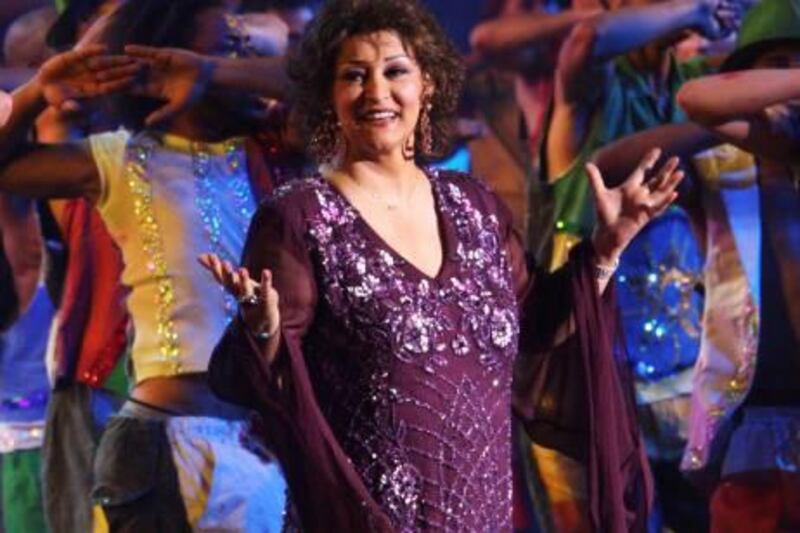It is just more than three years since Warda Al Jazairia made her final appearance in Abu Dhabi.
The "Algerian Rose" took the stage at the Emirates Palace in February 2009, at the invitation of the Abu Dhabi Authority for Culture and Heritage.
Still in fine voice at the age of 69, it was a memorable evening.
Almost forgotten is her first appearance in the capital, four decades ago.
The singer was in her early 30s, the nation even younger, having celebrated the first anniversary since the federation was formed on the historic day of December 2, 1971.
The concert was recorded by Abu Dhabi Television and broadcast later. A tape of the evening has survived. It captures something of the drama of the occasion, if not that of Warda's life at the time.
After marrying an Algerian army officer in 1962, she agreed to her husband's request that she give up singing to raise a family.
Then, on the 10th anniversary of Algeria's independence, she received a request from the then president, Houari Boumediene, to sing at the celebrations. Warda accepted her country's call.
That decision would eventually cost Warda her marriage, but also propel her back into the spotlight. And one of her first performances after the Algerian comeback was in Abu Dhabi.
Persuading a star of Warda's magnitude to honour the country's National Day was a huge coup for the organisers; perhaps, at the time, comparable to next week's concerts by Madonna in interest and anticipation.
In the early 1970s, the only female Arab singer to match Warda for star power was Umm Kulthum. It was the Egyptian diva - known as Kawkab Al Sharq, or "the star of the Orient" - who had been guest of honour at the celebrations to mark the Sheikh Zayed's fifth anniversary as Ruler of Abu Dhabi in late November 1971.
After giving two concerts, Umm Kulthum remained in the city to watch the birth of the new nation and was presented by Sheikh Zayed with a fabulous pearl and turquoise necklace.
The location of the concert by Warda is not clear, but given that the National Theatre was not built until the 1980s, it is likely that the venue was the same as that used for Umm Kulthum.
That performance space, with a capacity of 4,000, had been built in a matter of weeks on a patch of desert near where the Al Wahda Mall now stands.
The surviving footage of Warda's Abu Dhabi's debut began, incongruously, with a performance by an Iranian dance troupe.
The scantiness of some of the dancers' costumes and the fact that men and women performed together was reported to have caused something of a stir in the audience.
Warda takes the stage backed by her orchestra, dressed in a stunning green and gold, floor-length dress. She seems relaxed and happy, peering over the spotlights into the audience and waving in recognition at some of the guests.
Each song is greeted with applause and calls from the audience. At one point the camera swings away from the stage to show Sheikh Zayed seated in the front row.
Around him are other sheikhs and dignitaries, some clapping their hands to the rhythm of the music.
In the years after the Abu Dhabi concert, Warda moved to Cairo, where she married for the second time, to the composer Baligh Hamdi. By some estimates she sold more than 100 million albums in the Arab world and recorded at least 300 songs.
After her death last weekend, following a heart attack, her body was flown to her native Algeria to be greeted by hundreds of weeping fans.
The country's minister of culture, Khalida Toumi said her death meant that "one of the most beautiful voices of Algeria and the Arab world has just become silent for ever".
Mr Toumi added she had "gone, leaving behind her a deafening silence and a profound sadness".







